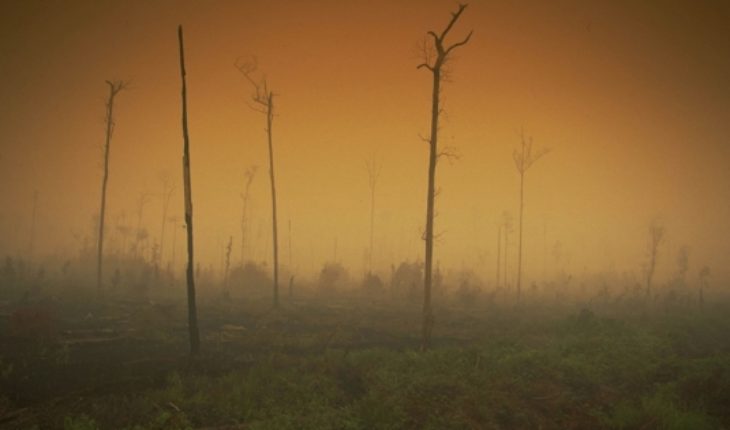Greenpeace warned that the climate that we traditionally knew in Chile disappeared. From now on it is necessary to begin to adapt to a new reality and try to take all possible measures in order to reduce to the maximum the consequences of extreme heat.
This would be consistent with a world that already faces the warning, not the reality of a clear climate change. So days who have known extreme temperatures have been given: 38.3 ° in Santiago, 41.5 ° in Chillán, Temuco, Valdivia 38.5 ° 42°, 35 ° and 25° Lord Cochrane and 29° in Punta Arenas, Puerto Montt.
“While there are many complex factors in play with extreme weather, the heat wave we are experiencing is consistent with predictions of a world affected by climate change,” explains Estefanía González, Coordinator of the area of campaigns of Greenpeace in Chile.
“The clear is that climate change is a reality that we perceive with greater notoriety every day. In this sense, according to the World Meteorological Organization, this extreme weather will be than usual in the future,”he says.
Thus also the meteorological direction of Chile warned him on the conclusions of the document “Evidence of changing climate in Chile”: observations show a significant increase in the intensity, frequency of heat waves, days and warm nights. In terms of precipitation, the annual amount decrease in much of Central and southern.
Increase of fire forestaes in this scenario is not mere coincidence that these heat waves occur hand in hand with forest fires that seem to be increasingly more difficult to curb. Thus, during the last decade, the number of claims, the burnt area, duration, simultaneity, severity and seasonality has increased dramatically in the Centre and South of the country, what is has meant 80% more burned by fires in large areas.
According to a column in the Centre of climate science and the resilience of the University of Chile, while nearly 90% of fires are caused intentionally or accidentally by people, the aggravation of these events is directly related with the increase of the maximum temperatures and the precipitation deficit. Both are effects of climate change, which is combined with a rural landscape dominated by highly flammable alien species.
In practice, this new scenario translates into an unusually hot and beaten down by wildfires, summer situation affecting one increasing number of population and in particular to the most vulnerable sectors of the country.
Fossil fuels Greenpeace warned that, despite the impacts of these climate changes, Chile continues with a strong dependence on fossil fuels, with a primary array based 70% on crude oil, natural gas and coal. A situation that is in evidence to verify that the Chilean power matrix is 41% in carbon-based.
“The prospect of what might happen if temperatures rise beyond 1.5 degree target established in the climate agreement of Paris is unexpected. We need to act as soon as possible, and that means leaving the burning of fossil fuels and accelerating the transition to renewable energy, for which we have the historic opportunity to lead the process in the next global climate summit COP25 to It will develop in our country”, added Gonzalez.
translated from Spanish: Extreme heat wave: “We must get the idea of the climate that we knew disappeared”
February 5, 2019 |





